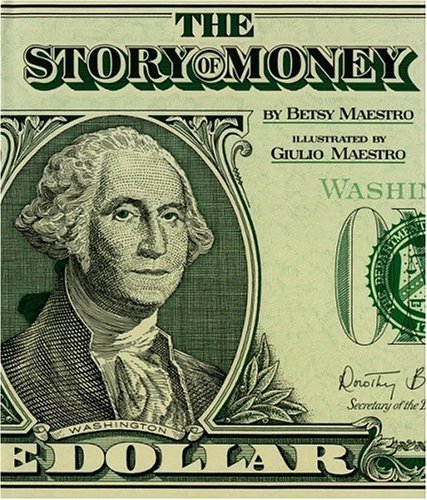The Story of Money
Is your child afraid of math? I know many who are. I also know that one of the most effective ways to help them overcome their fear of math is to give them an allowance. In addition to teaching your child patience, opportunity cost, and the value of things, money is a hands-on way to work through many math skills!
My son got hooked on math through his allowance. At the age of four, he wanted to save up for a LEGO kit. On a piece of graph paper, I marked one square for each dollar he would have to save. Whenever he got his allowance, he would color in the associated squares and we would count how many more squares - or dollars - he needed to reach his goal. By the age of five, he was using addition to calculate his goals, and by six he was multiplying. Now that he's seven, he has a money journal, where he writes down his debits, credits, and current balance.
His interest in money, and his age, led to the question: "Why do we use paper money? Why don't we use gold or computers?" I'm glad we had The Story of Money in our home library! This lovely book, written by an elementary teacher, traces the fascinating history of world currencies from the time of the very earliest humans. The engaging illustrations and clear text will take you and your child on a journey through ancient civilizations like Sumer and China. You'll then make your way to colonial America and discover how the dollar came to be.

The Story of Money is written in the style of Montessori's Cosmic Stories, which helps children stay engaged from start to finish. My son loved looking at all the different ancient coins, all carefully illustrated to actual size. This book can inspire many avenues of research for elementary students, from timelines to coin collections.
So, the next time your child feels scared of math, connect math to money, and money to human history with The Story of Money, and watch their fear turn to enthusiasm!
(This post contains an affiliate link. Purchasing through this link helps support the quality work you enjoy, at no cost to you. Thanks!)
Categories
- 3-6 (8)
- 6-9 (26)
- 9-12 (8)
- Positive Discipline (2)
- Conscious Parenting (12)
- Montessori Curriculum (9)
- Preparation of the Adult (14)
- Preparation of the Environment (11)
- Montessori Principles (11)
- Montessori Homeschooling (20)
- Language Arts (3)
- Math (3)
- Geography (2)
- Biology (1)
- History (2)
- Practical Life (1)
- Montessori Stories (4)

0 comments
Leave a comment